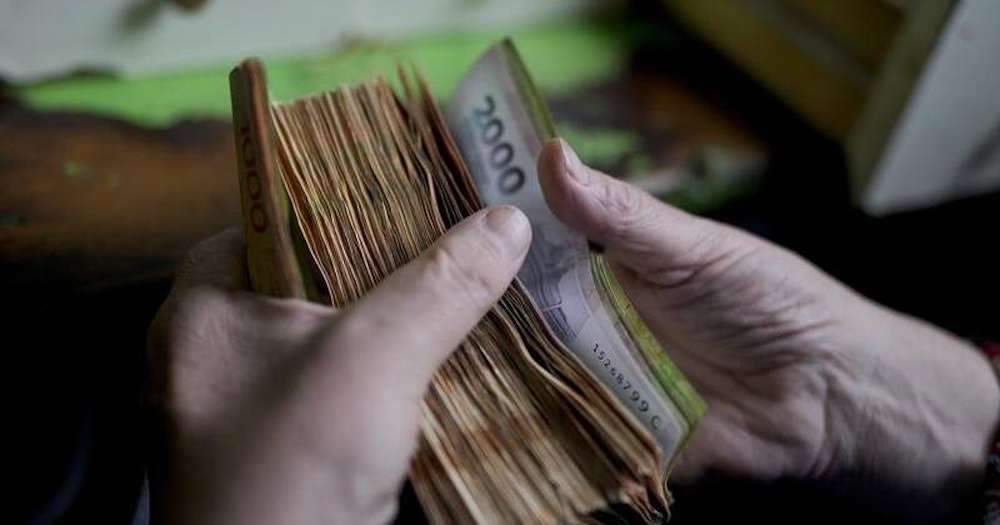Executives from Banco Nación were poised to travel to Wall Street, prepared to initiate their pitch for a bond sale intended to finance mortgages in Argentina. For bankers in many other countries, this event would have been rather unremarkable. In Argentina, where residents have had to purchase homes with large amounts of cash due to persistent inflation, currency devaluations, and repeated debt defaults disrupting the economy, this development signifies a gradual movement towards a semblance of normalcy. Following President Javier Milei’s recent electoral setback, which poses a significant risk to his free-market initiatives, there was a notable exodus of investors. This mass withdrawal triggered a severe currency crisis, prompting the Trump administration to offer a substantial US$20-billion support package aimed at stabilizing Argentina’s financial markets.
In light of rising interest rates and tightening credit conditions, the state-run Banco Nación has canceled its planned trip to New York. Other lenders have significantly increased mortgage rates to 15 percent above inflation, posing a risk to a segment of the financial system that had only recently begun to recover. “These rates are a death blow to the mortgage market,” stated Juan Manuel Truffa, prior to the announcements from the US government. The recent market tumult serves as a clear indication that, notwithstanding the indications of a turnaround since Milei assumed office less than two years ago, his success remains uncertain. The libertarian leader’s approach to shock therapy has effectively curbed rampant inflation, reducing it from triple-digit levels to approximately 34 percent through significant spending cuts, workforce reductions in government, and the deregulation of substantial portions of the economy. However, his popularity has experienced a decline, adversely affected by reductions in healthcare and education funding, alongside an emerging bribery scandal that implicates members of his inner circle.
Following the unexpected and significant defeat of Milei’s party in a local election in Buenos Aires Province earlier this month, global investors began withdrawing funds, betting that his precarious position would likely be further undermined by the more critical nationwide midterm elections scheduled for late October. The aggressive selling pressure impacted stocks, bonds, and the peso until intervention from the US Treasury Department aimed to avert a crisis threatening an ideological ally ahead of the election. However, as the turmoil subsided, this episode has nonetheless imposed a burden on the economy by elevating the cost of credit. Prior to the sell-off, the overnight bank lending rate surged to approximately 80 percent, while the expense associated with short-term corporate loans exceeded 100 percent. Since then, those costs have only reduced a portion of the increase. In the mortgage market, Banco Ciudad has ceased the issuance of new loans entirely, as reported by sources acquainted with the situation. Other significant financial institutions have tightened their credit standards and significantly increased mortgage rates. In August, Florencia, a 33-year-old school psychologist, and her husband secured approval for a 30-year mortgage to facilitate the acquisition of a one-bedroom, one-bathroom home valued at US$85,000, located just south of Buenos Aires. Subsequently, just prior to the election results that unsettled markets, their bank retracted the offer — citing that their credit score had fallen below the necessary threshold for qualification.
We experienced significant distress. “It was a life project for us, after so many previous failed attempts,” said Florencia, who requested that her last name be withheld due to concerns that any publicity could complicate her ability to secure a loan in the future. “I merely express a desire for stabilization. Living in this manner is disorienting.” Banco Nación, which accounts for approximately fifty percent of Argentina’s residential loans, remains the sole financial institution that has not adjusted its mortgage rates. However, individuals acquainted with the situation indicated that it almost doubled the credit score necessary for approval, thereby derailing the intended journey to New York aimed at promoting prospective bond sales that would facilitate an increase in lending activities. Daniel Tillard, refuted claims of heightened credit requirements and expressed confidence that any repercussions from earlier this month will be temporary. “We believe that the frictions are the result of an electoral period, both in mortgage credit and in the rest of rates,” he stated. “It should tend to normalize.” Currently, the credit crunch is eroding what was previously regarded as one of Milei’s early achievements. Upon assuming office, mortgage lending in Argentina was nearly non-existent, as the country’s persistent political instability and rampant inflation provided banks with minimal motivation to offer long-term loans. Buyers had justification for their avoidance as well, given that the rates are linked to the trajectory of inflation – indicating that an increase in consumer prices would result in a significant rise in their monthly payments. Consequently, the majority of homes were acquired using substantial amounts of US dollars, the currency that Argentines have historically favored for protecting their savings.
As inflation began to decline, there was a noticeable resurgence in mortgage lending activity. In 2024, banks extended US$1.3 billion of such loans, a significant increase from US$40 million in 2023. By the end of August, it had continued its upward trajectory, reaching a total of approximately US$2.5 billion. Even prior to the turmoil observed in the markets this month, challenges were beginning to surface. Milei’s actions to restrict the supply of pesos – and consequently strengthen the currency – inadvertently resulted in a contraction of credit availability. As the peso persisted in its decline, properties usually valued in US dollars became progressively less affordable. “This was always bound to happen,” stated Federico González Rouco. Clearly, the heightened risk adds complexity to the situation. This scenario is expected to persist for several months at best. Juan Pablo Rotger perceives himself as fortunate. Late last year, he and his wife acquired a two-bedroom, two-bathroom apartment just north of the capital for US$200,000, facilitated by a Santander mortgage that includes a 5.5 percent interest rate alongside a variable component linked to local inflation. “We entered at precisely the optimal time,” stated Rotger. “It is regrettable that it was so brief.”

